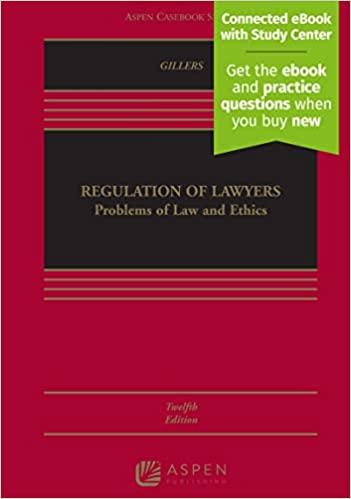This FIRAC answer should be base on laws of Georgia United States plz. Thank you.
Pitts D'Berg Steel, Inc. v Burton James Burton is an attorney who practices law in Dublin, Georgia. He is also the president and sole shareholder of Sweet 16 Construction Company (Sweet 16) based in Metter, Georgia. To be able to purchase building materials for anticipated construction projects, Sweet 16 established an account for the purchase of such materials from Pitts D'Berg Steel (PDS) on credit. This arrangement meant that Sweet 16 would owe PDS the money for purchased materials but would not have to pay for those materials until after the project had been completed. To avoid the possibility of losing money if Sweet 16 were unable to pay outstanding charges on its account, PDS obtained a personal guaranty from Burton. In a personal guaranty, the guarantor (Burton) agrees to be personally responsible for the debt of another (Sweet 16). Accordingly, if Sweet 16 could not pay its bills with PDS, Burton agreed that he would; however, Burton attempted to limit the terms of the guaranty by inserting the following handwritten language on the guaranty agreement: "This guaranty shall be limited to the amount of $30,000 outstanding at any time. I will receive all billings reflecting charges and payments on a monthly basis." Over the next several months, Sweet 16 obtained building materials from PDS that were charged to its account, incurring a $30,000 debt that Sweet 16 was unable to pay when the balance became due. Unable to collect the money due from Sweet 16, PDS sued Burton to enforce the guaranty agreement he had executed and collect the $30,000 from him personally. Burton claimed that he was not required to perform under the guaranty agreement because PDS had not directly sent him Sweet 16's bills each month. During a deposition, Burton testified that he was not involved in the day-to-day operations of the construction company, but that he was aware that Sweet 16 was receiving materials from PDS for various construction projects and that he saw the bills addressed to the company when he visited the Metter office. Burton made two arguments: (1) he claimed he did not have to pay because PDS failed to satisfy a condition precedent by not sending him the bills directly; or, in the alternative (i.e., if argument 1 fails); (2) PDS's failure to send him the bills directly constituted a breach of the guaranty agreement, relieving him of the duty to perform under the guaranty agreement. Analyze each of Burton's arguments using the FIRAC model to determine whether PDS can enforce the guaranty agreement and collect the $30,000 owed by Sweet 16 from Burton. Instructions for writing your paper Before you begin writing your paper, you may want to review the information in the Contracts chapter relating to conditions (when and how do they impact performance under a contract) and breach (what impact does a particular kind of breach have on performance under a contract). In addition, you will also need to understand how Georgia law treats these matters: . Georgia law does not like conditions in contracts, but prefers that parties just make promises and keep them, rather than making promises and putting conditions on their performance. Accordingly, Georgia Courts have held that in order to deem contract language a condition, it must have conditional words. . Georgia law recognizes that the main purpose of a guaranty contract is to personally obligate the guarantor for the debts of a third party, so that the third party can enter into the initial contract. Under Georgia law, a guarantor is relived of its obligations under a guaranty (guaranty main purpose defeated) only if the creditor exposes the guarantor unknowingly to greater liability than is set forth or contemplated in the guaranty agreement. his link opens in a new window/tab). Logo







